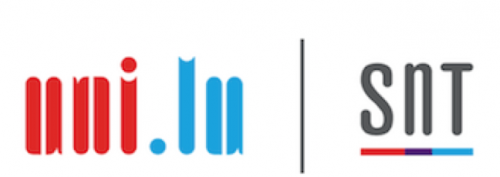UBIX Research Group (Host Group)

Distributed systems are ubiquitous, increasingly smart and interconnected. UBIX conducts research on distributed artificial intelligence in various application areas.
Researchers that are proactive, open, and have a strong technical background will find a welcoming environment where they will have the chance to work on meaningful projects, and the freedom to explore their research interests. They will also have the opportunity to collaborate on interdisciplinary projects with other research groups at SnT, developing complementary skills in the field of distributed systems. Furthermore, they will benefit from the group’s guidance on broadening their horizons and building long-lasting relationship with industry, all while working independently.
Prospective partners with a defined need to leverage AI in distributed and intelligent systems, and benefit from a reciprocal knowledge transfer will find an efficient team of researchers with long-standing industry expertise, and a deep understanding of the latest technologies, to explore new opportunities with. Fields of application include autonomous vehicles, IoT, edge computing, digital twins and smart cities.
Automation & Robotics Research Group
Mobile robots such as service robots, highly automated cars or drones are expected to become a huge market in the coming years. In contrast to the stationary and automatic robot arms, mobile service robots and drones will need to move in unstructured and unknown environments, perform complex tasks with a higher degree of autonomy and also to closely interact with human users.
Our mission and passion is to contribute to the creation of such autonomous vehicles and mobile robots. We are interested in novel perception and control approaches that enable robots to efficiently act on the ground, in the air and in space. We investigate approaches for intelligent control and how adaptation and learning can be applied in the context of perception and control. We are fascinated by robots that socially interact with humans and by robots that cooperate in teams. Finally, we also strive for novel methods to support the systems and software engineering of autonomous vehicles and robots.
Computer Vision, Imaging & Machine Intelligence Research Group (CVI2)
The Computer Vision, Imaging & Machine Intelligence Research Group (CVI2) is headed by Dr Djamila Aouada. The group carries out research on computer vision, image processing, image analysis, visual data understanding, and machine learning. A strong focus is given to developing state-of-the-art and innovative algorithms for various tasks such as data enhancement, data fusion, filtering, registration, estimation, detection, classification, recognition, segmentation, and deformation, with extensive use and development of deep learning approaches. Data of interest cover different modalities from 2D, RGB-D, infrared, Lidar, to dense 3D. Past and current specific research topics are on human body modelling including shape and pose; optimization and compression of very deep neural networks for image classification; cost-sensitive classification for fraud detection; 3D motion analysis for action recognition and action detection; multi-sensor fusion for robust sensing; face modelling for expression recognition and person identification. These imaging and vision activities are supported by the SnT Computer Vision Lab – a dedicated well-equipped laboratory located in Maison du Nombre (MNO), Campus Belval. In addition, large scale data collection campaigns are regularly organized by the team for the needs of specific projects.
All research activities are driven by real-world applications with a focus on one of the following domains: (1) Computer-Aided Design (CAD), (2) Healthcare, (3) Satellite and space, (4) Surveillance and security, (5) Services, (6) Education and public outreach.
This website is dedicated to announcing our research activities and collected datasets by our CVI2 team in collaboration with our industrial, medical and academic partners. Our datasets are meant to be different with very rich features. Please keep track of our datasets to request them.
The SnT CVI2 team hopes that the research outcomes are beneficial for the entire research community. Feel free to contact us with any questions, we are open to discussing common research proposals.
SEDAN Research Group

The newly established SEDAN (SErvices and Data mANagement) research group, headed by Dr. habil. Radu State addresses impact oriented research activities in the areas of security, service management and monitoring. More specifically the group is interested on designing architectures, algorithms and approaches in the context of the new challenges given by ever increasing volumes of data, multiple and permanent connectivity and new distributed consensus systems based on blockchain paradigms. For this purpose we address scalable virtualization mechanism based on unikernels, programmable dataplanes and data analytics as key enabling building stones for our research activity.
MobiLab Transport Research Group
![]()
The underlying research mission of the MobiLab team is to gain an understanding of how complex transportation networks behave and in turn can be managed/optimised. This involves:
(1) Studying human behaviour, which affect traffic and transport at the operational (driving behaviour and its impact on efficiency, comfort and safety), at the tactical (choices like which mode, at what time to travel, which route, etc.) and strategic levels involving long-term decisions (residence, car ownership, etc.);
(2) Modelling transport and mobility patterns as a complex multi-layered, multi-modal and multi-objective network design problem using advanced dynamic models that consider activity-travel choices, traffic propagation dynamics, as well as innovative Intelligent Transport Systems for dynamic monitoring and management.
(3) Optimising the supply system, i.e. how can transportation services be optimised to handle the demand considering the inherent dynamics occurring at both daily and weekly time periods due to variable mobility patterns of the transportation users.

